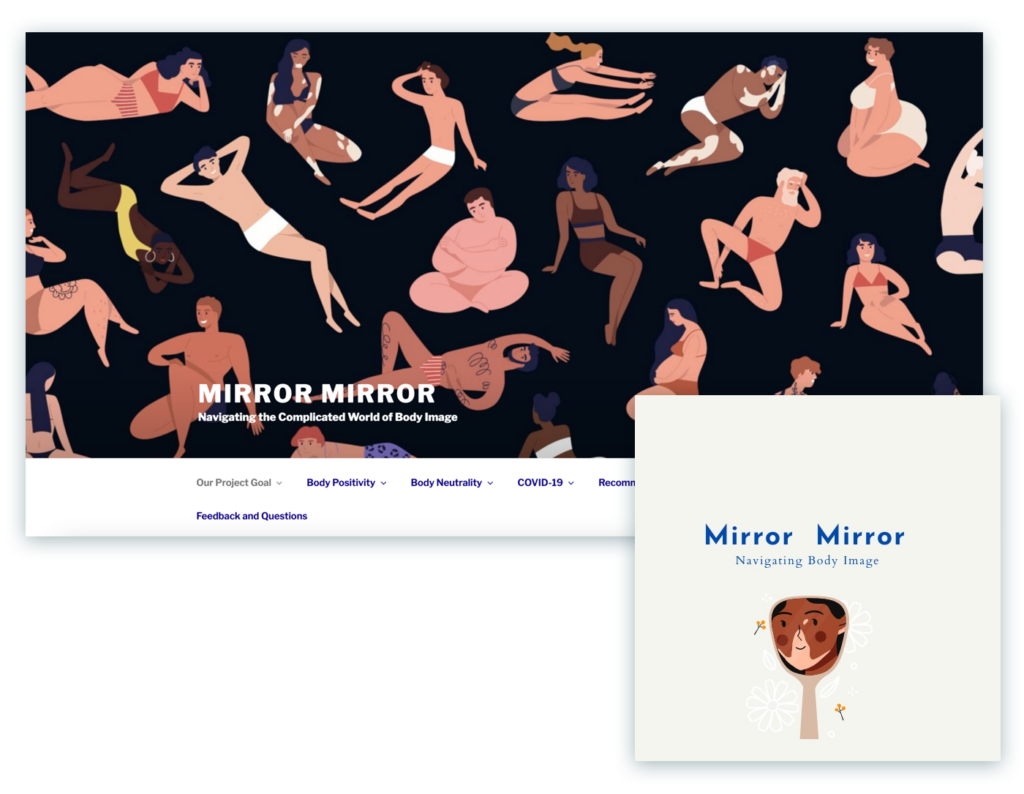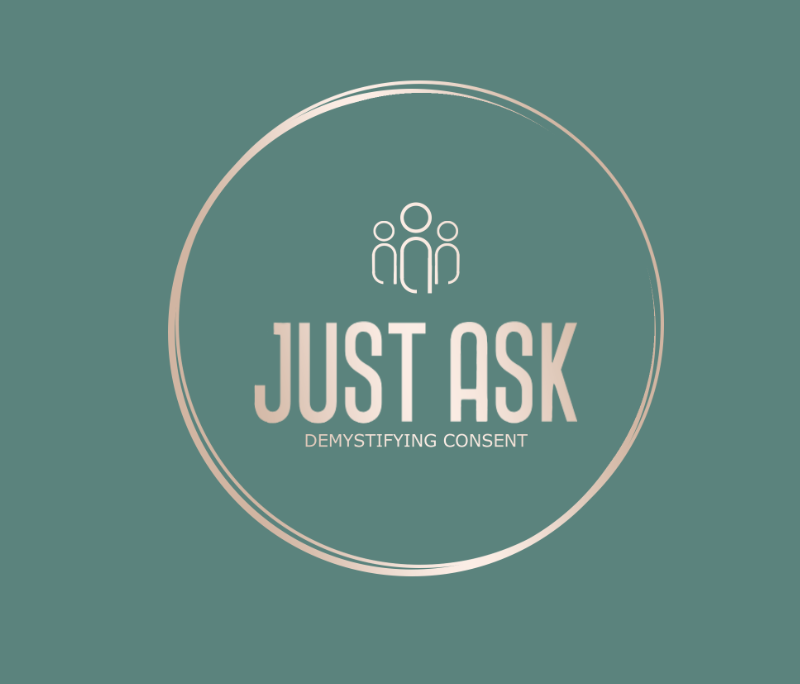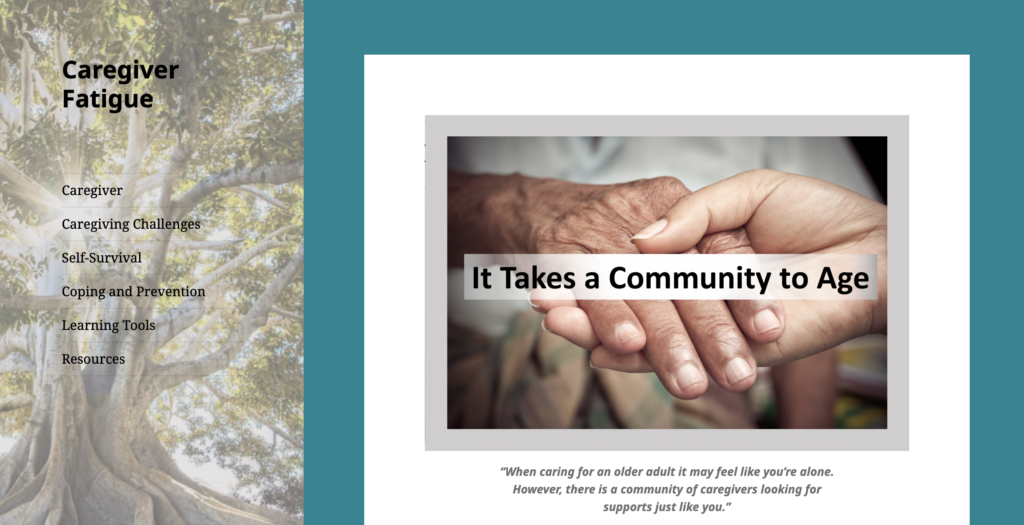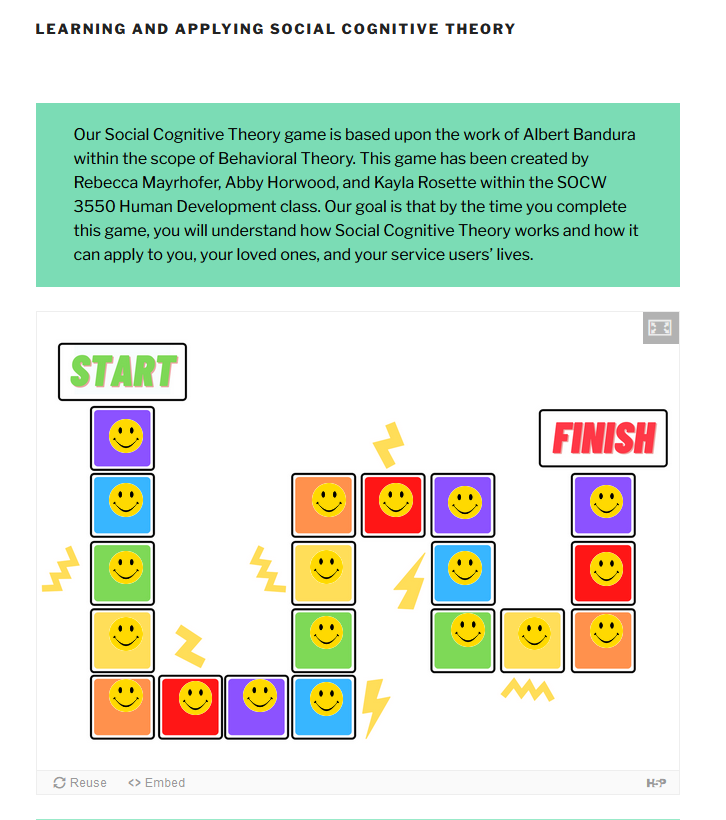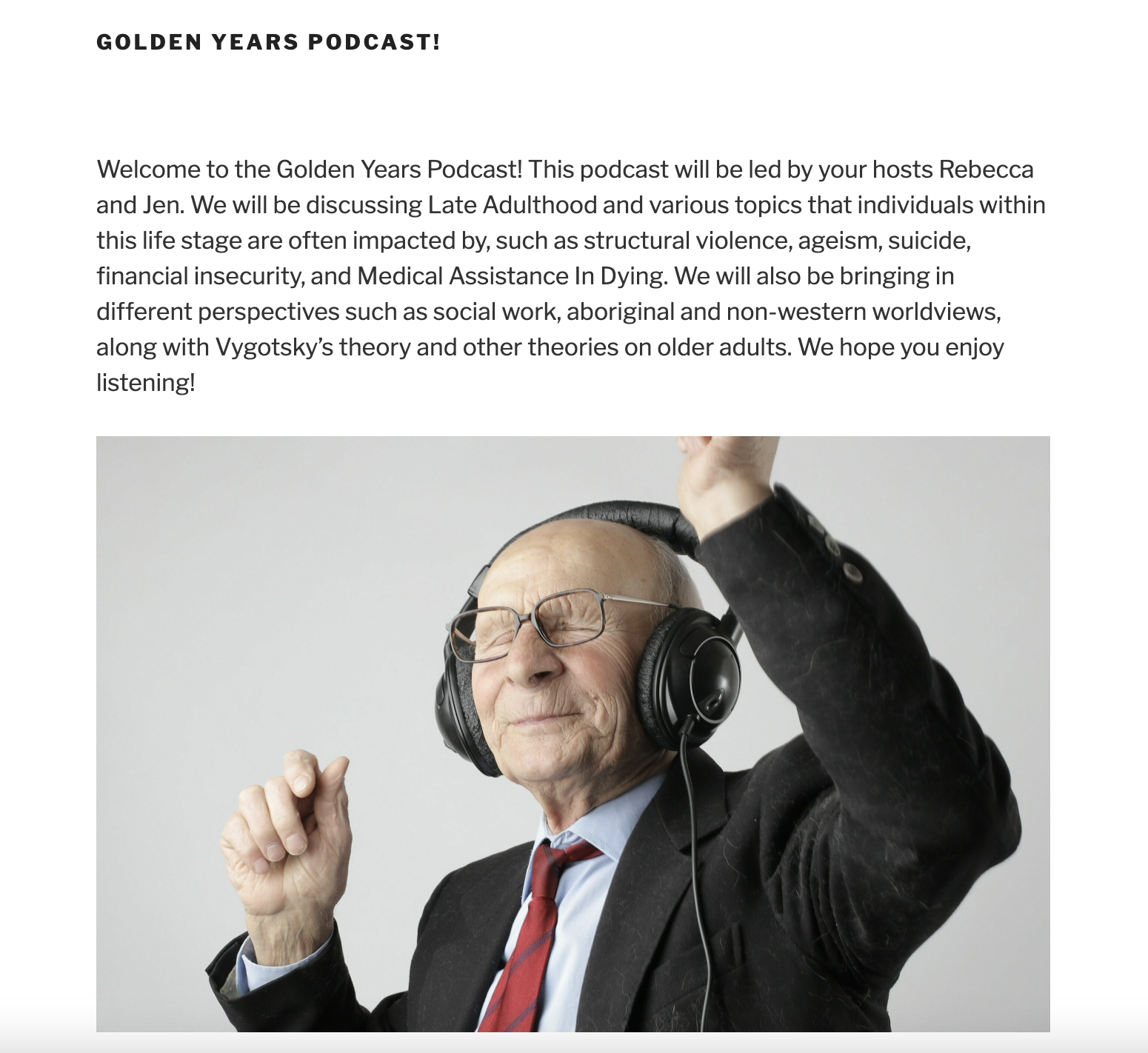Student Websites
Trubox class websites can be as unique as you want to make your project. Each set of examples is prefaced with a copy of the project assignment Dr. Kathie McKinnon provided each of her students. That said, these are not to be seen as restrictions but rather to showcase the creativity websites can provide students, even when they are given the same set of instructions.
Below, we have provided you with student examples, and at the bottom of this page, you will find examples of more alternative assessment ideas.
Student Project Examples
Mirror Mirror by Mia and Marie
This body image project was created with self-awareness in mind. We wanted to create a platform that could start the conversation about body neutrality, body positivity, and the effects of COVID-19 on body image. Body image issues affect everyone during their lifetime. It’s important to normalize having conversations about where our insecurities come from and what we can do to diminish them.
Throughout this website, there may be some triggering topics. Since body image can be a very sensitive topic, it’s important to ground yourself as you read, listen and experience this complicated world of body image.
Check out their project goal to view the mind map created by Mia and where it all started.
From Mirror Mirror by Mia and Marie, used with the author’s permission.
JUST ASK by Mackenzie and Holly
Consent 101: Demystifying Consent. This website is dedicated to explaining what consent is, how it works, and what to do if something happens to you or someone you know. So breathe deep and exhale slowly. While consent is a tricky subject, this website will help you understand and navigate what consent really is.
From JUST ASK by Mackenzie and Holly, used with the author’s permission.
Caregiver Fatigue by Jasmine and Christine
As our third-year Bachelor of Social Work practicum with Thompson River University, we created this website to help spread awareness and support for caregivers within the community and beyond. We want to disclose we are not trained professionals in this area. Our goal is to bring awareness and help you connect with trained professionals. It takes a community for healthy living and aging. In times of caregiving, it is easy to fall victim to thinking you are alone in your situation. Caregiver fatigue is more common than anyone wants to admit, and there is a community to support you throughout your challenges.
From Caregiver Fatigue by Jasmine and Christine, used with the author’s permission.
Copy of Project Assignment by Dr. Kathie McKinnon
Family Resource Assignment: A Collaborative Learning Activity
For this assignment, you are to work in your assigned groups to locate background research and support information (resources) that would be useful in supporting a family characterized by an issue of family diversity or challenge. You will be co-creating a family resource website on WordPress, so remember, this is important research that your group is co-creating for people to use as a current resource. Jamie Drozda will provide technical guidance and speak to the class about creating a WordPress site. She will provide extra help if your group needs it on Tuesday afternoons, time to be announced soon (see more information on Moodle).
This is an academic assignment, so please ensure you reference all material appropriately. Use APA throughout and include an APA-style reference page at the end of your group work.
Using the web and electronic library resources, you will collectively compile an annotated Bibliography of sources that will include:
- A summary of Demographic and Statistical Information about the families in question
- Video resources (talks, lectures and short films related to your topic) 5 sources
- Organizations and services (local, provincial, national, and international) that provide support and information to your families. (6 sources that would be useful to family members or family supports)
- Articles that provide information and insight into the needs and characteristics of the families (5 sources at least 2 from academic journals)
For each source you find will include a one paragraph summary and use APA format for citation. Each summary will describe the content of the material, relevance to Human Service practice and relevance to parents or family members. For this assignment you will open a WordPress site to collect your resources and innovatively co-create and compile your research into finished collection for families, multi-disciplinary professional, community partners, student colleagues, and others to view. Instructions and tutorials will be provided on how to use WordPress. I would highly recommend your group be creative and attentive to your visual presentations on WordPress.
* The above assignment was originally designed by Jay Goddard and was altered to a WordPress assignment.
Assistance for Single Families by Ricardo, Emma and Sophia
Being a single parent in a household can be stressful, difficult to manage and at times you might feel lost. Parents who are seeking assistance may struggle to find valuable resources that will promote a balanced and healthy lifestyle. It is our hope that here you will discover the multiple supports offered to those who are raising a child without a partner.
From Assistance for Single Families by Ricardo, Emma and Sophia, used with the author’s permission.
More Alternative Assessment Ideas
As the semesters go on, the possibilities for online alternative assignments grow. Whether you are looking for something new and exciting online like Gamification, which can be a learning curve but definitely worth it. Or want to try Podcasting, which the following projects essentially created an audio assessment for their project and uploaded on Moodle or onto a WordPress site as well. Yes, there are opportunities to create and upload Podcast episodes to streaming platforms, and it is always an option down the road – but that isn’t necessary and won’t take away from this experience!
